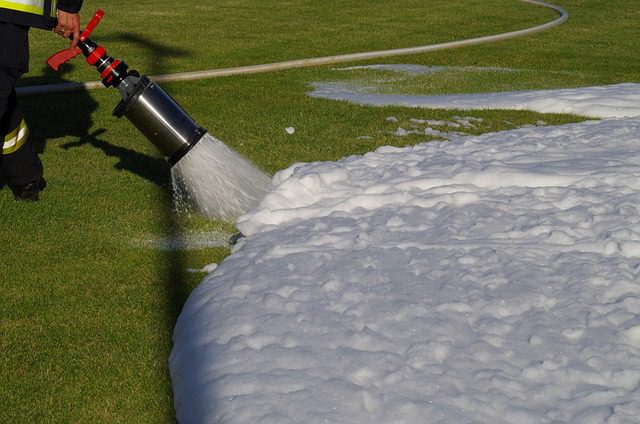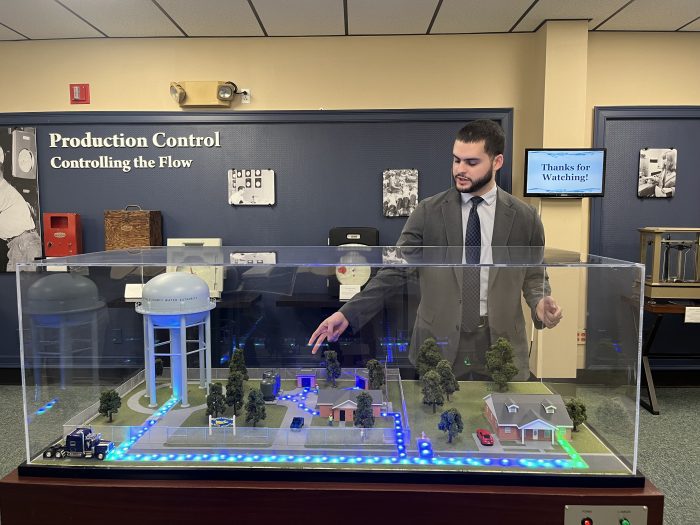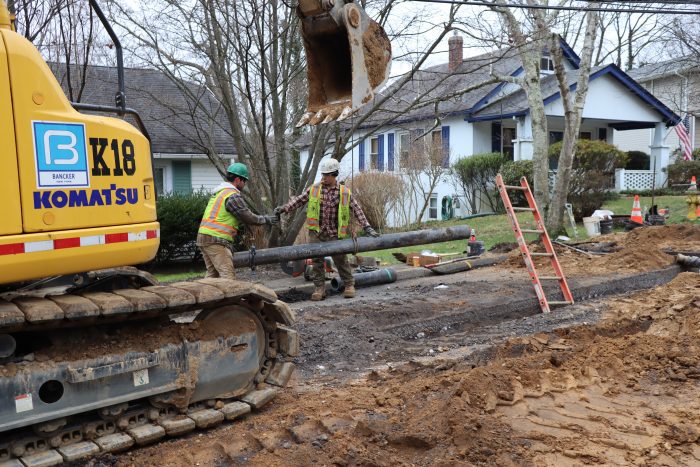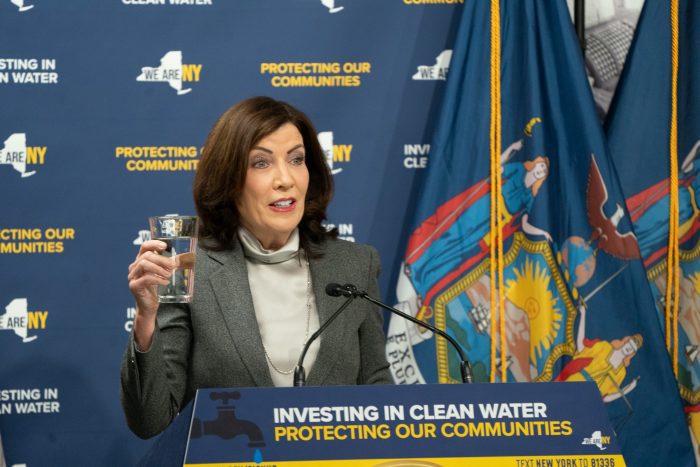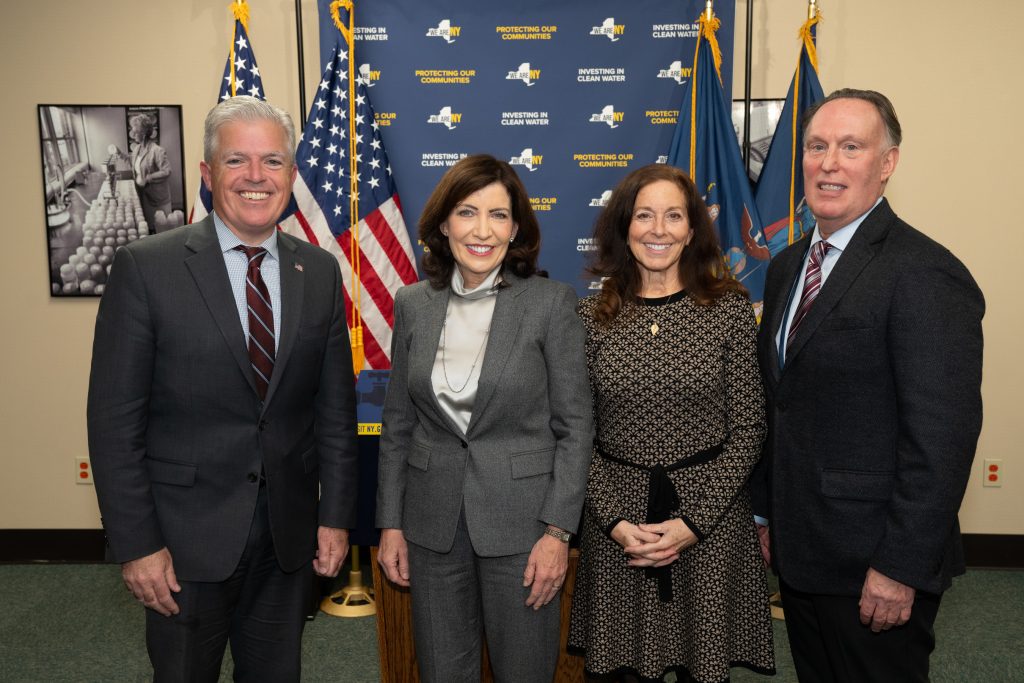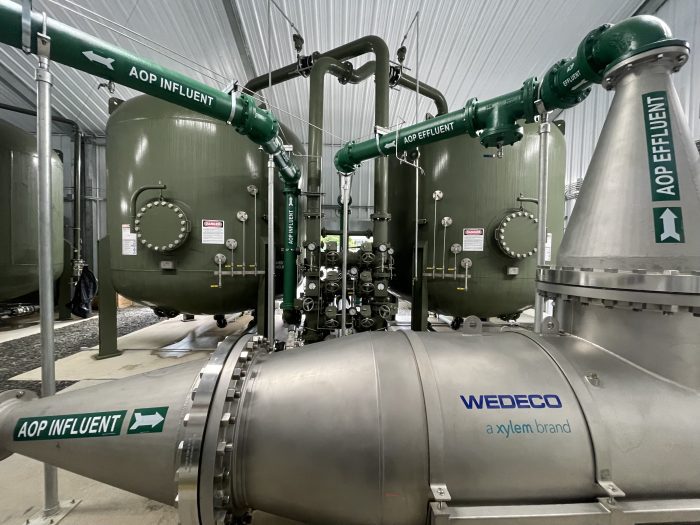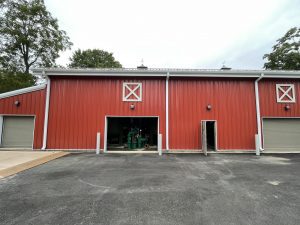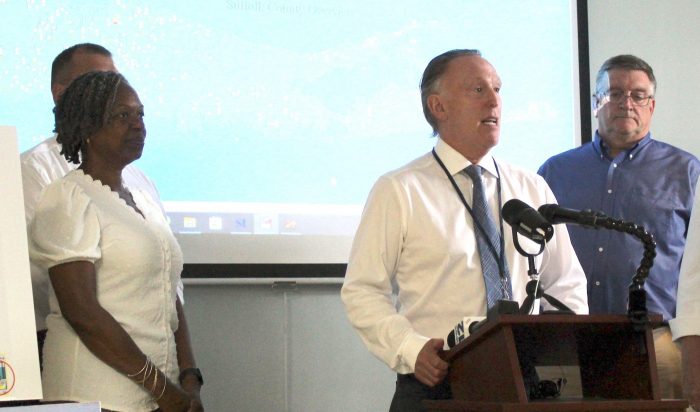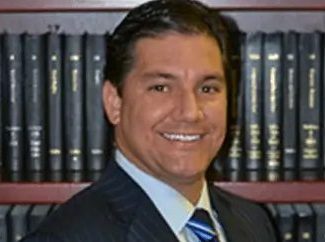By Daniel Dunaief
Forever is wonderful when it comes to love, but not so much when it comes to chemicals that don’t break down and stay in the human body, accumulating over time and threatening people’s health.
In a move applauded by environmental advocates and health officials, the Environmental Protection Agency last week set a limit on the amount of so-called forever chemicals, such as per- and polyfluoroalkyl substances, called PFAS, of four parts per trillion in drinking water.
Water companies have until 2027 to complete initial monitoring to reduce chemicals that have been linked to damage to the kidney, testes, liver, thyroid, reproductive and immune system, according to the new regulations. Found in a host of products including fireman’s foam, carpets, clothing, food packaging and nonstick cookware, PFAS are resistant to oil and water.
New York State already had one of the toughest regulations in the country, as the Empire State set maximum contaminant levels of 10 parts per trillion for these chemicals in 2020.
Charles Lefkowitz, chairman of the Suffolk County Water Authority applauded the EPA for this new national standard.
The SCWA has been “preparing for this and we are well on our way to meeting all regulatory requirements within the time frame laid out by EPA,” Lefkowitz said in a statement. “Since 2020, when New York enacted its own PFAS rules, SCWA has been meeting or surpassing all standards. It has given us a great head start on the new rules, but there is still work to be done.”
Suffolk County Health Commissioner Dr. Gregson Pigott noted that the state’s water standards for emerging contaminants are among the most protective in the country.
“The new federal measures will have the greatest impact nationwide and will also further protect our drinking water on Long Island,” Dr. Pigott explained in an email.
Environmental groups recognized the ongoing work at the SCWA to meet these standards and appreciated the authority’s public disclosure of its testing results.
Adrienne Esposito, Executive Director of Citizens Campaign for the Environment, described the SCWA as “ready” for this rule change and “poised for action.”
Since 2016, the SCWA installed 27 new Granular Activated Carbon treatment systems that remove PFAS from drinking water, The authority expects to install as many as 80 new GAC systems to meet the new regulations.
“We are well within our way to achieving that within the timeframe set by the EPA,” Jeff Szabo, Chief Executive Officer of SCWA, explained in an email.
Each new system costs about $1.5 million to install. SCWA had already instituted a $20 per quarter water quality treatment charge to customers in 2020, when New York State established its PFAS limits.
SCWA has also secured $9 million from New York State for GAC treatment, which, Szabo explained, would help reduce the cost to customers.
Rates won’t be increasing in the next fiscal year. The rates, which are based on the budget, may change in future years, depending on the operating budget, a spokesman said.
SCWA tests all of its wells at least semi-annually for PFAS. If the authority finds a well with these chemicals, it retests the well at least quarterly and, in some cases will test it every month or every two weeks.
Private wells
Esposito urged people with private wells to test their water regularly.
“People think when they have a private well, it comes from a mysteriously clean spring,” said Esposito. “They must get their wells tested. Ignorance is not bliss. If there are PFAS, they must call and report it and see if they’re eligible to get federal funds for filtration.”
Esposito estimates the cost of testing for private well water could be $200 to $250.
Carbon filtration, using a process called reverse osmosis, can remove PFAS.
The cost of installing filters depends on the home and the type of filter. Several online providers estimate a cost between $800 and $3,000, although specific costs from different providers may vary.
Residents can call the Department of Health Services Office of Water Resources at (631) 852-5810 for information on testing by either the health department or a local contract laboratory. Health department staff are also available to provide treatment recommendations.
The New York State Department of Environmental Conservation has provided alternate water supplies to a limited number of private well owners on a case-by-case basis over the last several years.
The New York State legislature is considering proposed legislation to provide grant funding to private well owners with impacted wells to connect to public water or install treatment.
The county health department coordinates with the DEC and the state Department of Health when they receive information regarding water that exceeds PFAS containment levels.
People interested in further information about the health effects of the PFAS are urged to reach out to the New York State Department of Health.
Jaymie Meliker, Professor in the Department of Family, Population and Preventive Medicine in the Program in Public Health at Stony Brook University, added that private wells have numerous potential contaminants in part because Long Island has so many septic systems.
These wastewater systems are a source of nitrogen for waterways, leading to fish kills and can also add contaminants to drinking water.
Wastewater treatment is “vastly under resourced,” said Meliker. The county and the state need infrastructure investments.
As for PFAS, they can vary from one neighborhood to the next.
On the manufacturing side, companies are working to lower the toxins of PFAS, creating shorter chains that provide the same benefits without the negative effect on health.
Meliker was pleased that the EPA had established low level limits for these chemicals that accumulate in the human body.
The studies and concerns have been “going on for a couple of decades,” he said. “There’s enough evidence to suggest it’s prudent to do something.

